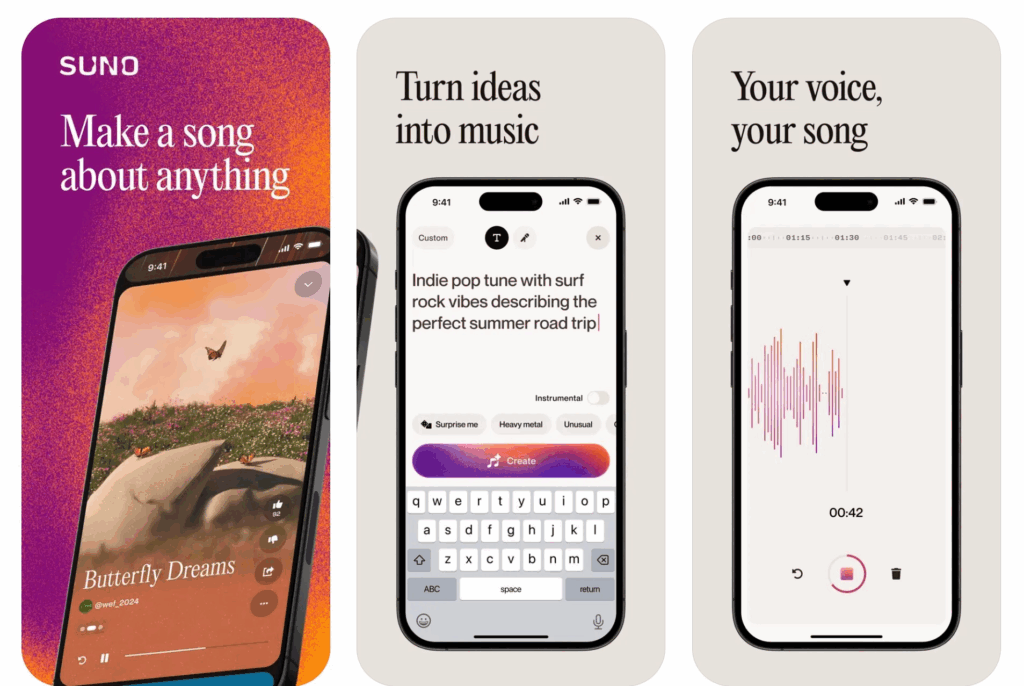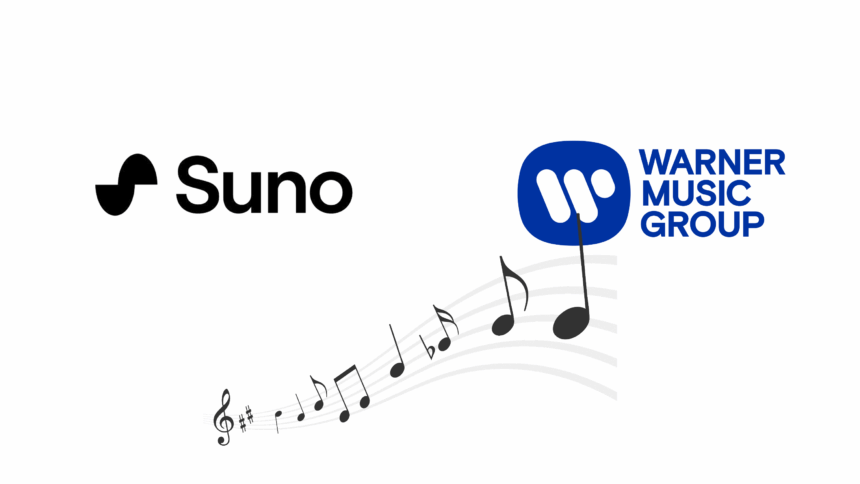Warner Music and Suno, one of the most talked-about AI music generators in the world, are partners on the same side of the table. The two companies signed a licensing deal that changes the relationship between major record labels and AI audio tools. This move happens after months of copyright tension, lawsuits, and debates about how AI models treat creative work. Warner steps into a new era of AI-driven music with an approach it describes as pro-artist and pro-innovation.
This deal creates new creative channels for artists and fans. It also puts fresh guardrails around AI-generated music, a topic that still stirs anger, anxiety, and excitement across the industry. The agreement speaks to a larger shift in music rights, training data access, and the responsibilities of both creators and tech platforms.
What’s Happening & Why This Matters
Warner and Suno Lock In a First-of-Its-Kind Partnership

Warner is the first major label to strike a formal deal with Suno, often called the “ChatGPT for music.” Under the agreement, fans and creators prompt Suno to generate new songs using the voices, names, and likenesses of Warner artists who opt-in. The deal includes acts under Warner Music Group such as Coldplay, Charli XCX, and Ed Sheeran. Warner frames the plan as a new revenue path for artists, not a threat to authenticity or creative value.
Warner CEO Robert Kyncl says the partnership proves AI acts as a pro-artist tool when licenses support transparency and compensation. “This pact with Suno is a victory for the creative community,” Kyncl says. He adds that Suno’s rapid scale and monetization opened a window to shape models, protect rights, and introduce new fan experiences through AI.
Suno Agrees to Rein In Its Model and Remix Its Platform Rules

The deal forces updates across the Suno platform. Suno plans to release new, licensed AI music models next year, replacing the current ones that helped create thousands of unlicensed tracks sitting across Spotify, Apple Music, and YouTube. The changes add friction by limiting downloads, restricting features to paying users, and capping how many tracks paid users generate.
Suno says downloads only unlock for paid-tier subscribers, and even those subscribers have even stricter controls. The approach attempts to keep AI creations from flooding music platforms without attribution or oversight. It brings Suno’s audience closer to more intentional, copyrighted use.

A Deal Ends a Spate of Lawsuits and Settlements
The agreement arrived shortly after Warner settled a lawsuit and signed a partnership with Udio, another AI song generator. Last year, Warner joined Universal Music Group and Sony Music in lawsuits against Suno and Udio for large-scale copyright infringement. The labels argued the AI tools scraped music catalogs without permission to output derivative songs.
Universal recently settled with Udio. Sony remains active in lawsuits against both Udio and Suno. Universal has ongoing litigation against Suno. Warner, meanwhile, chose collaborative licensing — less courtroom, more controlled cooperation.
The Suno agreement also includes Suno’s acquisition of Songkick, a well-known concert-discovery platform. A finalized deal opens a path for AI music to meet live-music ecosystems.
TF Summary: What’s Next
The Warner–Suno partnership resets the conversation about how AI-generated music interacts with creative rights. This deal signals a new model: labels move from lawsuits toward structured licensing, while AI platforms accept limits that protect creators. The question now focuses on which artists opt in, how new royalty structures form, and how fast other labels follow this template.
MY FORECAST: Major labels race to build similar deals as they attempt to control revenue as AI-music booms. AI music platforms accept royalties, artist-opt-in rules, and stronger licensing as the cost of doing business. Fans engage with AI-powered music in visible, more mainstream ways. Artists use these tools to experiment without fear of losing control of their identity, songbooks, or monies.
— Text-to-Speech (TTS) provided by gspeech


